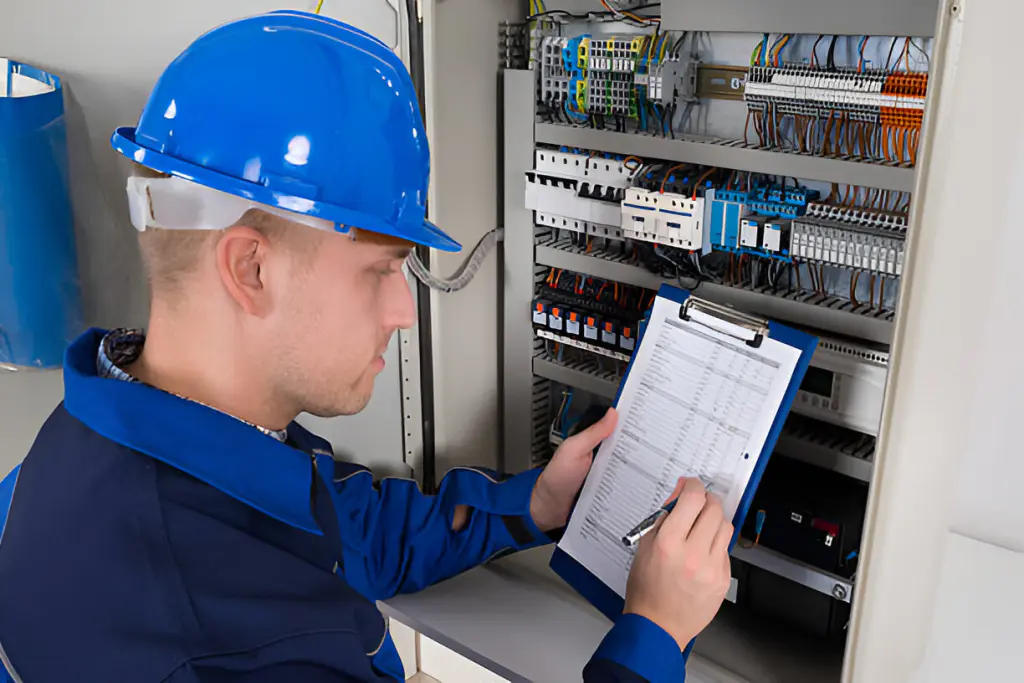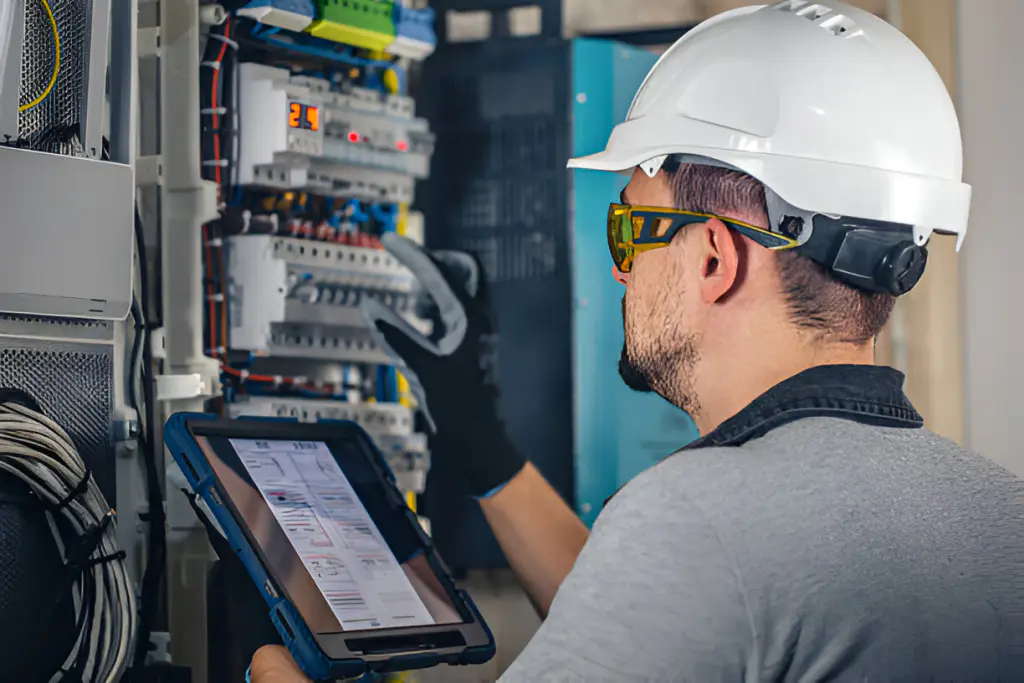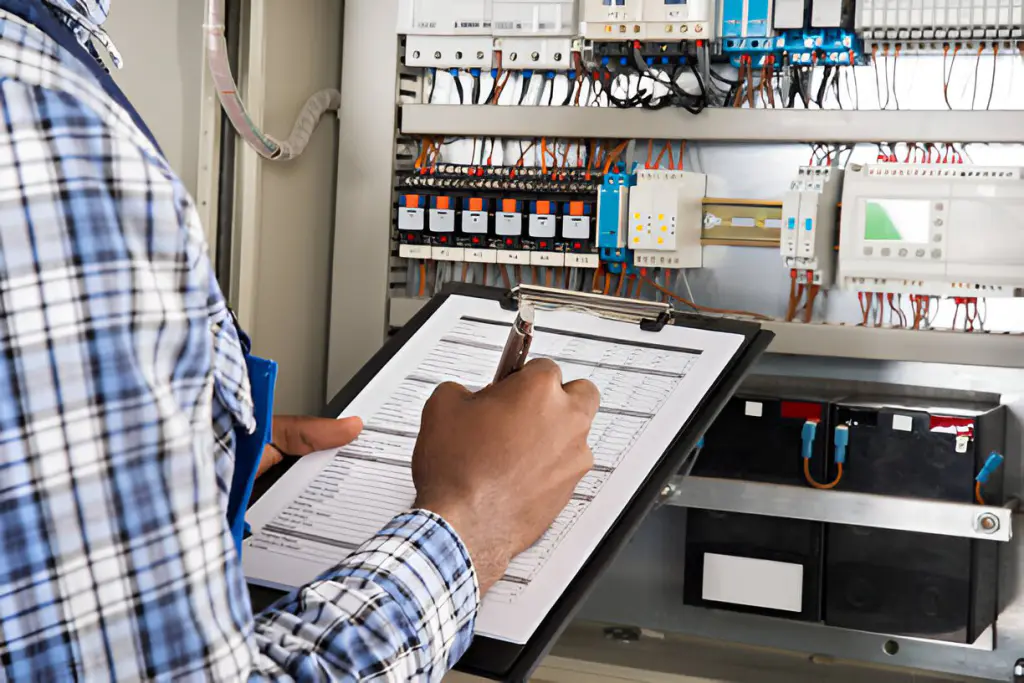In London, the importance of adhering to electrical safety regulations cannot be overstated for both residential and commercial property owners. The Electrical Installation Condition Report (EICR) stands as a critical requirement, dictated by law, to ensure that all electrical installations are safe and up to code. For residential landlords and commercial property owners alike, understanding the specifics of these requirements, including the frequency of inspections and the potential repercussions of non-compliance, is essential.
As we navigate the complexities of EICR obligations, one must consider how these regulations not only influence legal compliance but also contribute to the overall safety and integrity of property management. What are the nuances that property owners must be aware of, and how do these impact their responsibilities? Let’s understand EICR Required for Residential and Commercial Properties
What is an EICR and Why is it Important for Property Safety in London?
An Electrical Installation Condition Report (EICR) is a critical assessment required for evaluating the safety of electrical systems within both residential and commercial properties in London. This document is instrumental in identifying any deficiencies against the national safety standard for electrical installations.

It serves to uncover any potential electrical risks that could lead to accidents or fires, thereby ensuring that all electrical installations are safe and well-maintained.
Despite its importance, there are prevalent EICR misconceptions. One common myth is that it’s an optional or unnecessary expense. On the contrary, EICR is a fundamental preventative measure that safeguards property and lives against electrical hazards.
Another misconception is that any electrician can perform this assessment. Only qualified and competent persons should conduct EICRs to ensure a thorough and accurate evaluation.
Electrical safety is not merely a regulatory compliance issue but a critical investment in the longevity and safety of a property. Ignoring the need for an EICR can result in severe consequences, including legal liabilities and increased insurance premiums.
Therefore, understanding and implementing this assessment is paramount for property owners in London.
EICR Required for Residential and Commercial Properties: What You Need to Know
Understanding the significance of the Electrical Installation Condition Report (EICR) for maintaining property safety in London, it is imperative for homeowners to be aware of specific requirements that apply to residential properties.
The EICR process involves a thorough inspection and testing of a property’s electrical systems and installations to ensure they meet rigorous electrical standards and regulations. This assessment must be conducted by a qualified electrician or approved contractor who possesses the requisite expertise to identify any deficiencies or deviations from the current standards prescribed in the UK’s Wiring Regulations.
For residential properties, the EICR is designed to evaluate the safety of electrical installations, often highlighting areas that require immediate attention or future monitoring.
The frequency of these inspections depends on several factors, including the age of the installation, usage patterns, and environmental influences, which could potentially degrade electrical components more swiftly. It is generally recommended that homeowners undertake an EICR inspection every ten years or upon change of tenancy in rental properties.
Adhering to these specifications not only ensures legal compliance but significantly mitigates the risk of electrical failures and hazards, safeguarding both the inhabitants and the structure of the property against potential electrical mishaps.
Are EICR Inspections Mandatory for Commercial Properties in London?
For commercial properties in London, the requirement of conducting Electrical Installation Condition Reports (EICR) is indeed mandatory, governed by stringent regulations to ensure electrical safety and compliance. The legislation surrounding EICR for commercial premises is designed to minimize electrical risks, promote safety, and uphold the integrity of electrical installations over time.
- Regulatory Compliance: Adherence to The Electricity at Work Regulations 1989 mandates regular inspections and testing of electrical systems in commercial properties to prevent hazards.
- Safety Protocols: EICRs are crucial in identifying deteriorations, defects, and potential risks in electrical installations, thereby protecting occupants and visitors from electrical hazards.
- Legal Accountability: Failing to conduct an EICR can result in legal repercussions, including fines and invalidated insurance claims for property owners.
- Maintenance Strategy: Regular EICRs aid in effective maintenance planning, ensuring all electrical systems operate efficiently and are less likely to fail unexpectedly.
- Financial Prudence: Proactive identification and rectification of electrical issues through EICRs can significantly reduce the cost of emergency repairs and downtime caused by electrical system failures.
Understanding and complying with EICR regulations is essential for anyone managing a commercial property in London to maintain high standards of electrical safety and legal compliance.
The Legal Obligations for Landlords Regarding EICRs in London
While the regulations for commercial properties are well-established, residential landlords in London also face strict legal obligations concerning Electrical Installation Condition Reports (EICRs). These stipulations are crucial in ensuring the safety and compliance of residential tenancies.

The law mandates that landlords must have their electrical installations inspected and tested by a qualified person at intervals not exceeding five years. This inspection culminates in the issuance of an EICR, which must be provided to existing tenants within 28 days of the inspection and to any new tenant before they occupy the premises.
Landlord responsibilities extend to keeping copies of the EICR for inspection until the next report is due. The obligation includes ensuring that all electrical installations are safe upon a tenant’s occupation and maintained in a safe condition throughout the tenancy. This proactive approach not only preserves the integrity of the property but also safeguards tenant rights to a safe living environment.
Furthermore, the regulations empower tenants to request a copy of the EICR, which the landlord must furnish within 28 days. This transparency underscores a commitment to upholding tenant rights and fostering a relationship based on trust and safety, pivotal in the dynamic landscape of residential leasing in London.
Penalties for Non-Compliance: What Happens if You Don’t Have an EICR?
Failing to comply with EICR requirements subjects landlords to significant penalties that underscore the gravity of these regulations.
The legal ramifications of neglecting to secure a valid Electrical Installation Condition Report (EICR) can be severe, impacting both financial standings and legal status.
Landlords must appreciate the critical nature of these mandates, designed to ensure electrical safety standards are maintained, thereby safeguarding tenants and properties alike.
Key penalties include:
- Substantial Fines: Non-compliance can lead to hefty fines imposed by regulatory authorities, which escalate with repeated violations.
- Compromised Insurance Claims: Insurers may refuse to settle claims related to electrical faults if an EICR was not conducted or if existing recommendations were not implemented.
- Legal Prosecution: In severe cases, landlords might face prosecution for breaching safety laws, potentially resulting in criminal charges.
- Restriction on Renting: Authorities can prohibit renting out properties that fail to meet electrical safety standards until compliance is achieved.
- Reputational Damage: Failure to comply can damage a landlord’s reputation, making it harder to attract and retain tenants.
Landlords should regard these potential penalties not merely as punitive measures but as crucial motivators to uphold safety and legal standards.
When and How Often Do You Need to Schedule an EICR in London?
Understanding the scheduling requirements for an Electrical Installation Condition Report (EICR) in London is essential for compliance and ensuring tenant safety. The regulations stipulate varying EICR frequency depending on the type of property and its use.
For residential properties, landlords are required to obtain an EICR before the start of a new tenancy, and subsequently every five years. However, if the rental is a House in Multiple Occupation (HMO), the EICR must be conducted every five years irrespective of tenancy changes.

For commercial properties, the guidelines recommend more frequent evaluations. An EICR should be performed every five years or upon change of occupancy. Furthermore, businesses with high levels of electrical demands or those inonremises exposed to environmental harshness might require more frequent checks.
Scheduling considerations must account for operational continuity in commercial settings, often necessitating out-of-hours service to minimize disruption.
To ensure compliance, property managers and owners should establish reminders well in advance of the due date for EICR renewal. Engaging a certified electrical inspector who can provide detailed and authoritative reports is crucial.
This proactive approach not only aligns with legal mandates but also upholds safety standards.
How EICRs Protect Tenants and Ensure Safe Electrical Systems in London Properties
Electrical Installation Condition Reports (EICRs) serve a fundamental role in safeguarding both the structural integrity of electrical systems and the welfare of tenants in London properties.
The primary function of EICRs is to ensure that all electrical installations are rigorously assessed for safety and efficiency, significantly reducing the risk of electrical hazards. This process is vital for maintaining tenant safety and preserving the longevity of property infrastructure.
Key benefits of EICRs include:
- Prevention of Electrical Hazards: Identifying potential electrical failures that could lead to serious accidents or fires.
- Compliance with Safety Standards: Ensuring all electrical installations meet current regulatory standards, promoting a safe living environment.
- Early Detection of Faults: Spotting early signs of wear and tear or degradation, which might otherwise go unnoticed until a serious problem arises.
- Enhanced Property Value: Maintaining optimal electrical functionality which can contribute to the property’s market value.
- Legal Protection: Mitigating liability risks for property owners by proving due diligence in maintaining electrical safety.
Through meticulous electrical inspections, EICRs play a crucial role in both preventing emergencies and fostering a secure habitat for tenants across London.
Conclusion
In conclusion, the implementation of Electrical Installation Condition Reports (EICRs) is imperative for ensuring the safety and compliance of both residential and commercial properties in London. Strict adherence to the mandated inspection intervals and regulations not only safeguards tenants but also fortifies property integrity against electrical hazards. Non-compliance incurs significant legal penalties, underscoring the necessity for property owners and landlords to engage qualified professionals for timely assessments and adherence to safety standards.









